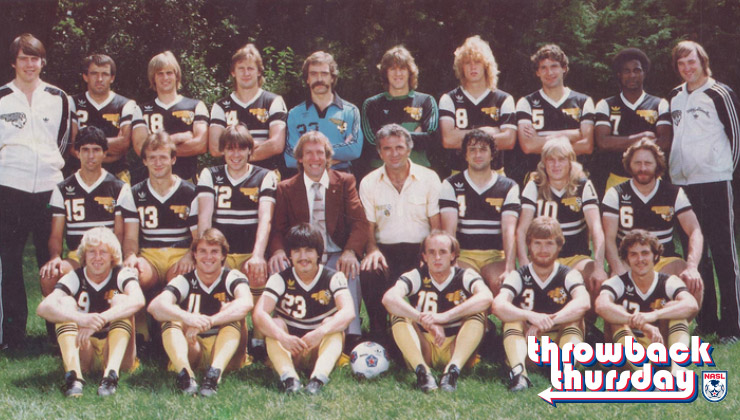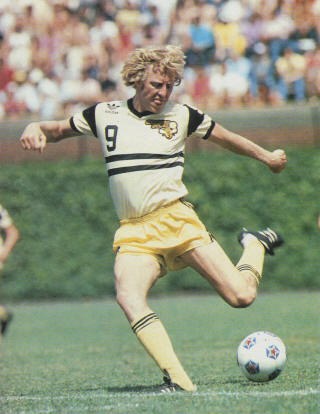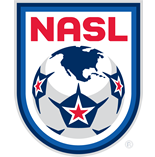THROWBACK THURSDAY | Chicago Sting Defeat New York Cosmos In Shootout To Win NASL Title

The 1981 NASL season was destined for one outcome – the New York Cosmos and the Chicago Sting meeting in the Soccer Bowl. The two teams posted identical win-loss records (23-9), made their way through the grueling postseason, which included best-of-three series, and eventually squared off for the league’s ultimate prize, the Soccer Bowl trophy, at Toronto’s Exhibition Stadium.
“We always had a good rivalry with them,” Charlie Fajkus told NASL.com. “We figured we would see them somewhere along the way.”
The Cosmos, who had already won four NASL titles, were expected to be in the final each year with a collection of some of the best players in the NASL Golden Era.
For the Sting, the process of building a team capable of reaching and winning the final started years before.
Willy Roy, a former Sting player, took over as coach in 1979. Steadily building the team season after season, the 1981 team was a squad with veteran leadership, technical acumen, and powerful goalscorers.
The Sting was led by a pair of Germans, striker Karl-Heinz Granitza (19 goals) and midfielder Arno Steffenhagen (17), the Argentine flair of Pato Margetic, and veteran American midfielders Rudy Glenn and Fajkus who both scored seven goals in the regular season.
“A lot of us joined the team in ’79 or ’80 and Willy Roy was building the team at the time,” Fajkus said. “He found himself a pretty good nucleus of foreign players and ’81 peaked with a good mix of American talent.
“We also had a lot of depth and as injuries arose guys just filled in.”
As with many winning teams, there was a certain swagger about the Sting that season. After reaching the playoffs three seasons in a row before to the ’81 season, the run to the final had a different edge. The Sting headed into every match expecting to win, showing a resilience when needed.
“That’s really the one and only season when we walked on the field and we thought that we’re walking off each game with a W,” Glenn said. “It was known that season if you go to a Sting game, don’t leave your seat until the game was over because we had a team that had powerful players that could ignite and do magical things at any time.”
After a strong regular season, that swagger and resilience carried the Sting through a difficult postseason. Chicago needed a 3-2 comeback victory in a decisive match against the Seattle Sounders in the first round. Fajkus scored the game-winning goal in that match.
 “We always found a way to win, and the playoffs was the same thing,” Fajkus said. “There were several games we were down a goal or two going into the second half and found a way to score a couple of goals.
“We always found a way to win, and the playoffs was the same thing,” Fajkus said. “There were several games we were down a goal or two going into the second half and found a way to score a couple of goals.
“We were down, 1-0, at halftime [against Seattle] and one of our key players got red carded. There was never really any doubt, we came back and won, 3-2. It was one of the most amazing games I was a part of. It was the same thing against Montreal and San Diego – we had that fight that we were never out of it.”
In the quarterfinals, the Sting dropped the first game against the Montreal Manic, only to storm back with two 4-2 wins to advance. Next up, the Sting would eventually need a shootout to dispatch the San Diego Sockers in a crucial third game to reach the final.
“The confidence continued to build as the season progressed and there was no doubt in my mind that year was the year that we didn’t feel that anybody could beat us,” Glenn said. “We walked out with so much confidence, at least I did myself, but as a group it spilled over to everybody.”
In Toronto, the Sting met the Cosmos. After 90 minutes, and an additional 15 of extra time, of back-and-forth play the score was tied, 0-0, on a wet and cold afternoon that turned into evening.
“There was enough respect given between each team, and the quality of play was solid with a lot of opportunities,” Glenn said. “I think we played a hard-fought game.”
The scoreline was incredibly surprising, though, after the previous two games that season which yielded a 3-2 match in favor of the Sting and a wild 5-5 match that ended in a shootout, again a win for the Sting.
“We played them in an epic game at Wrigley Field that ended 6-5 in a shootout,” Fajkus said. “If you would have asked that these two teams were playing and it was going to end 0-0, they would have laughed at you.”
The shootout at Soccer Bowl in Toronto was just as tight as the match. The first two takers from each team couldn’t convert, including the Cosmos star striker Giorgio Chinaglia. After a third successive miss from the Sting, Vladislav Bogicevic gave the Cosmos the lead.
Fajkus, who normally would have been in the shootout, had been subbed out and anxiously watched from the sideline.
He said: “It was pretty intense. I came out towards the end of overtime, I was out of gas. Typically, when we did have a shootout I took them. It was harder for me to watch because I couldn’t participate. Every moment was bigger than the next.”
After Granitza leveled for the Sting, an attempt from Cosmos defender Ivan Buljan was saved by goalkeeper Dieter Ferner. Glenn stepped up next with a chance to put the Sting in front.
“I was always the type that wanted to be put in the position to take a penalty kick,” Glenn said. “When Willy Roy asked me to take one I was ready. When I got out there, it was total silence. Everything goes to full concentration and all I noticed was [Cosmos goalkeeper] Hubert Birkenmeier in goal – it was like we were the only two on the field.”
His deflected shot off Birkenmeier went into the net, putting all the pressure back on the Cosmos to extend the shootout.
“I had taken one against Hubert before and the only thing I was concerned about was ‘Do I do the same thing or go to the opposite side?’ The one I took in the shootout in Chicago I went to my right and he dove to his left and it hit the bottom of his left hand and went in the goal. In the championship game I changed it up and went to my left and he actually dove to his right and hit the bottom of his hand as well and went in.”
Bob Iarusci, a Toronto native, couldn’t find a finish and the Sting became the first and only team to defeat the Cosmos in a final.
It was the city of Chicago’s first championship since 1963 when the Chicago Bears knocked off a New York team, the Giants. Upon returning from Canada, the Sting were welcomed with a huge reception.
“It was enormous,” Glenn said. “There had been no championship team for 40 years. The town was ready, we were already exposed as a top team in Chicago for soccer.
“Getting off the plane we were instructed to not stop and keep walking because there was a lot of people. It turned out there were almost 10,000 people at O’Hare.”
It was a memorable season for the Sting and the best season in many of the players’ careers, but Fajkus has one regret.
“It’s still special and every five years or so we have a reunion, so it’s nice to connect with those guys,” he said. “The one thing I wish was that there was more footage. We were not in an era of social media, so I wish there was more of that I could share with my family.
“They’ve seen some tapes of me playing and that team playing, but there is a lot of stuff missing. I wish we were that good at a different time.”

.PNG)
